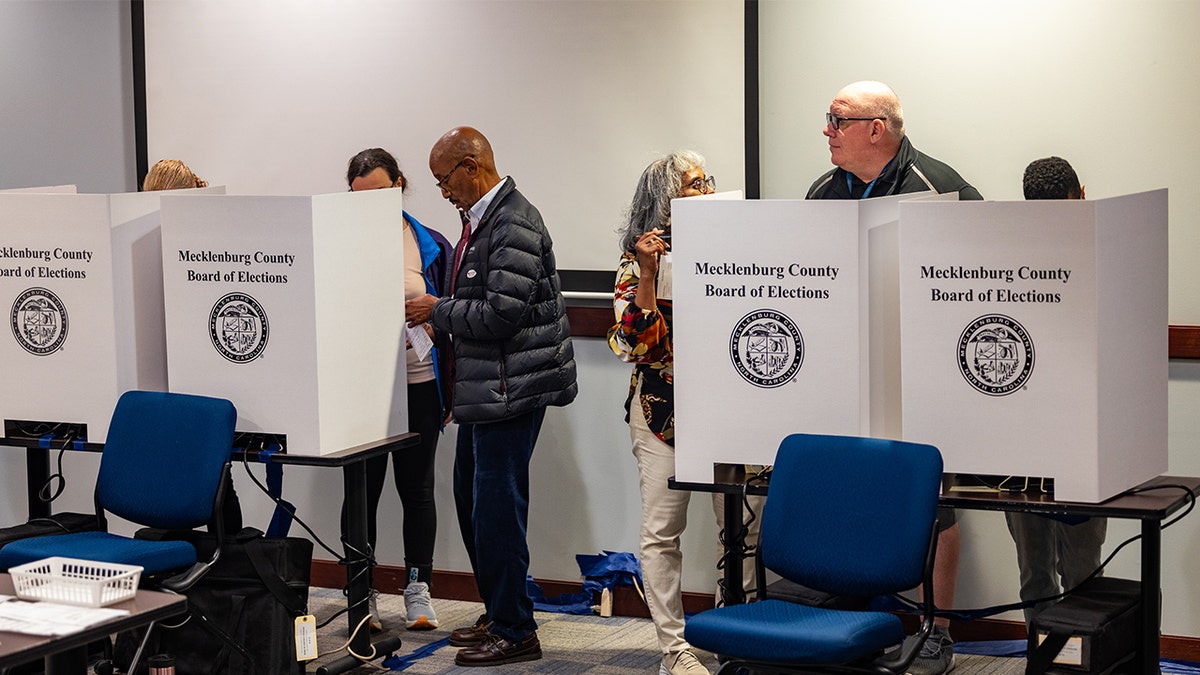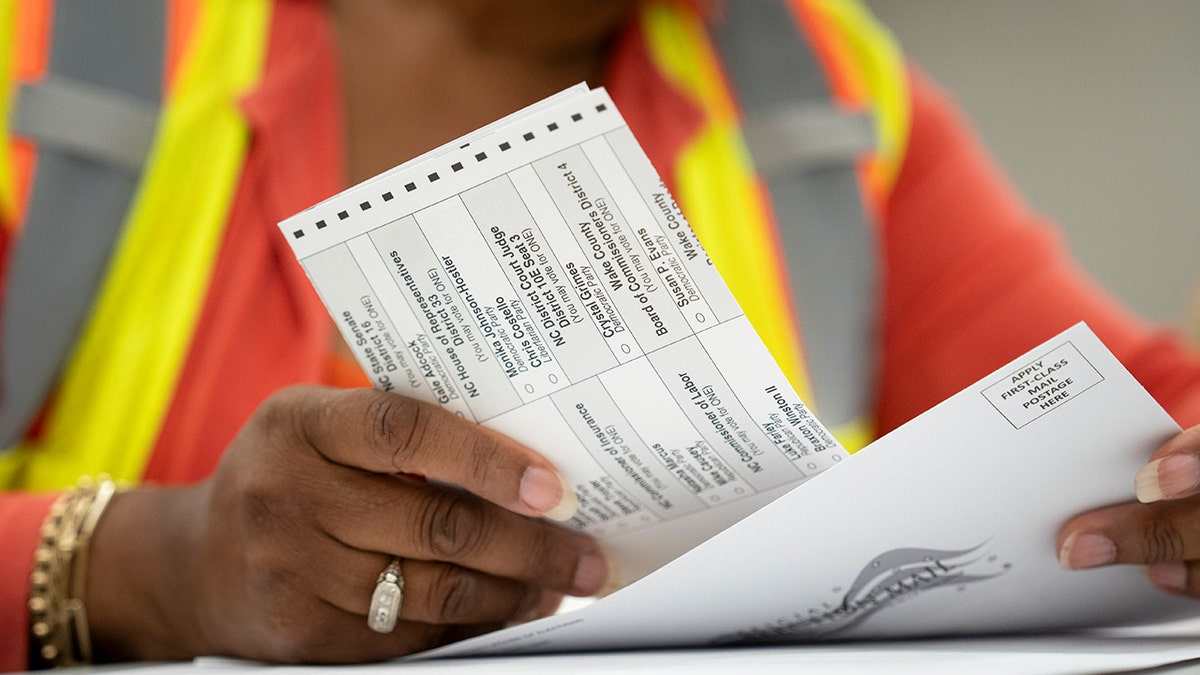A federal appeals court blocked a GOP effort to challenge 225,000 voter registrations in North Carolina that they claimed were made without an ID requirement.
The Republican National Committee (RNC) and North Carolina Republican Party (NCGOP) filed a lawsuit against the North Carolina State Board of Elections claiming voters were registered using a registration form that did not require identification such as an ID or Social Security number. The suit claimed that allowing people on voter rolls without identification violated the Help America Vote Act.
The case was sent to a federal court by the State Board of Elections, but on Oct. 17, Chief District Judge Richard Myers ruled that parts of the case be moved back to the state court.
But in a Tuesday ruling, the 4th U.S. Circuit Court of Appeals reversed his decision — meaning the case will remain in federal court where Myers will determine how it proceeds.
DEMS NEED TO RAMP UP EARLY VOTING EFFORTS TO MATCH GOP MOMENTUM IN NORTH CAROLINA: ANALYST

Voters cast their ballots at an early voting location ahead of the upcoming general election in Mecklenburg County, North Carolina, on Oct. 25, 2024 (Photo by Nathan Posner/Anadolu via Getty Images) (Nathan Posner)
The reversal serves as a blow for the Republican plaintiffs who supported Myers’ efforts to return the case to the state court.
In the ruling, Circuit Judge Nicole Berner said that sending the case back to the state court was “improper.”
GOP CHALLENGES TO OVERSEAS BALLOTING RULES STYMIED IN TWO KEY BATTLEGROUND STATES
“The State Board refused to perform Plaintiffs’ requested act—striking certain registered voters from North Carolina’s voter rolls—on the ground that doing so within 90 days of a federal election would violate provisions of Title I of the Civil Rights Act of 1964,” Berner wrote.

Absentee ballots are prepared to be mailed at the Wake County Board of Elections on Sept. 17, 2024 in Raleigh, North Carolina. (Allison Joyce)
CLICK HERE TO GET THE FOX NEWS APP
“We are not convinced that defendants conceded to a violation of HAVA, but we need not reach that issue. Defendants argue that HAVA Subsection (a)(2)(A) actually prohibits them from removing the voters in question rather than requiring them to do so,” the decision read.
